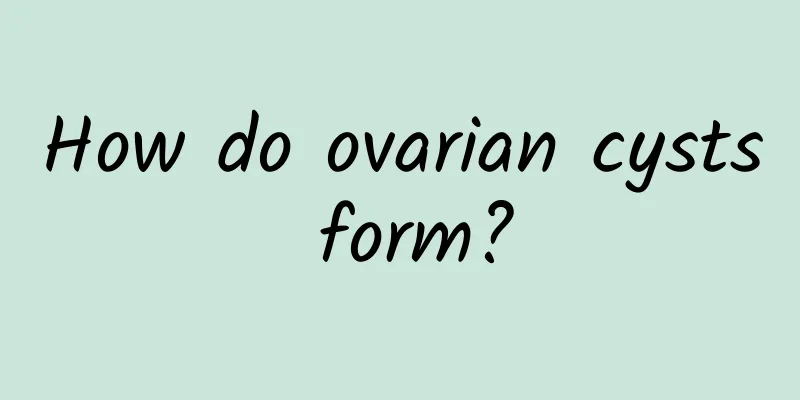How do ovarian cysts form?

|
Ovarian cysts are generally formed under the stimulation of genetic inheritance, bad living habits, abnormal cell growth, ovulation disorders, endocrine disorders and other reasons. 1. Genetic inheritance: Relatives of patients with ovarian cysts also have a higher incidence, suggesting that genes may play a role in the development of ovarian cysts. 2. Bad living habits: Staying up late for a long time, irregular diet, lack of exercise, etc. may affect the secretion of hormones in the body, thereby increasing the risk of ovarian cysts. 3. Abnormal cell growth: If the patient is exposed to radiation stimulation for a long time, it may cause abnormal proliferation of cells in the ovaries and form cysts. 4. Ovulation disorders: Normally, the ovaries release follicles at regular intervals. If this process is disturbed and the follicles are not released as expected, cysts may form in the ovaries. 5. Endocrine imbalance: The function of the ovaries is regulated by hormones in the body, such as estrogen, progesterone, etc. If the secretion of these hormones is unbalanced, it may cause ovarian dysfunction, further increasing the risk of cyst formation. If the patient feels unwell, he/she should seek medical attention in time. At the same time, he/she should maintain healthy living habits, strengthen exercise, and have regular physical examinations. |
<<: Where does pelvic inflammatory disease hurt?
Recommend
How to cure cervical precancerous lesions
Cervical cancer is a very common gynecological di...
How to treat pelvic inflammatory disease
How is pelvic inflammatory disease treated? Pelvi...
Can obese people eat grapefruit? Nutritionist Gao Minmin: 6 types of people should be careful when eating grapefruit
"Pomelo" meets Mid-Autumn Festival, the...
What are the symptoms of endometrial polyps?
Symptoms of endometrial polyps include irregular ...
What does uterine fibroids mean? What is the age of onset of uterine fibroids?
Uterine fibroids are actually very common, but du...
Swedish study: 66 grams of chocolate a week can prevent stroke
Are you a chocolate lover who is still worried ab...
Issues that need attention in nursing patients with amenorrhea
In today's society, due to the influence of v...
Effective preventive measures for vulvar leukoplakia
The cause of vulvar leukoplakia is very complex, ...
What are the symptoms of irregular menstruation in girls? You can drink these two kinds of tea for irregular menstruation in adolescence
Symptoms of irregular menstruation in girls may o...
Just love big fish and meat? Eat chicken breast to lose weight easily
The Lunar New Year is approaching, and the highli...
Does drinking sugary drinks increase your mortality rate? !
Summer is approaching, and the high temperatures ...
What drugs are used to treat vaginal candidiasis
What drugs are used to treat candidal vaginitis? ...
How to prevent recurrent miscarriage? Pay attention to these 4 points
The occurrence of recurrent miscarriage can indee...
Adding oranges to dishes can help you lose weight! There is a way to break down fat
The bright yellow oranges are not only bright and...
Lose weight, lose weight! 3 new favorites for burning fat and promoting metabolism
As the weather gets warmer, people are worried ab...









